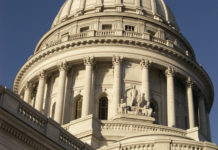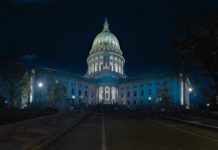
Even though the legislative session is still months away, with an election still pending to determine the final makeup of the legislature, plenty of work is being done now to set the stage for what are likely to be the legislative priorities for Texas leadership next year. The legislature’s biggest priority, and constitutional obligation, is to adopt a biennial budget—and the largest expenditure of that budget is healthcare.
The current budget, for fiscal years 2018-2019, spends almost one of every two dollars on healthcare. About 40% of this money is from the federal government, earmarked by Washington, DC for Medicaid and Children’s Health Insurance. In addition, the state is responsible for covering healthcare for state employees and those within the Texas prison system.
Texas’s healthcare spending has increased by about 20% since 2011.
Even with the increase in spending, the state still ranks 41st in the country for healthcare spending. In fact, the state has a Medicaid spending shortfall and lawmakers expect they will have to supplement this biennium’s budget with about another $2 billion when the legislature meets next year.
Some of the reasons for these increasing healthcare expenditures include federal spending cuts, new medical technologies, chronic disease, an aging population, increased utilization, and uncompensated care.
With increasing healthcare costs and a Medicaid supplement to fund, many wonder how the state will meet its healthcare obligation in the coming biennium and in the future. The state has a few options. First, because of increased oil and gas production in the state, the Texas Comptroller has bumped the state’s budget revenue up by $2.8 billion, which could plug the health care shortage—if healthcare spending was budget writers’ only challenge.
While many advocate for more healthcare spending, there are equal forces advocating for increased spending on public education, Hurricane Harvey relief, and transportation. Additionally, tax increases are a political non-starter for lawmakers. In fact, members are receiving pressure to provide property tax relief without implementing a state income tax.
All of these are important priorities which must be funded. Meanwhile, the state does sit on an $11 billion Rainy Day fund. Almost nobody advocates for “raiding” the fund, but some do maintain that now is the time, if there ever is one, to utilize the fund to at least pay for Harvey relief—one-time infrastructure spending that will prevent the state from having to spend more on flood mitigation in the future. But others define “raid” differently and believe that spending any money from that account is irresponsible.
Legislative elections in November will determine the course of this spending. The House members will elect a new Speaker and some of the Lt. Governor’s most vocal champions are vulnerable in November. Those with strong opinions on these spending challenges will be watching and working to influence these elections.
Click here to read Part One, which dives into how Hurricane Harvey will impact the legislature.
Click here to read Part Two, where we dive into the budget process.





